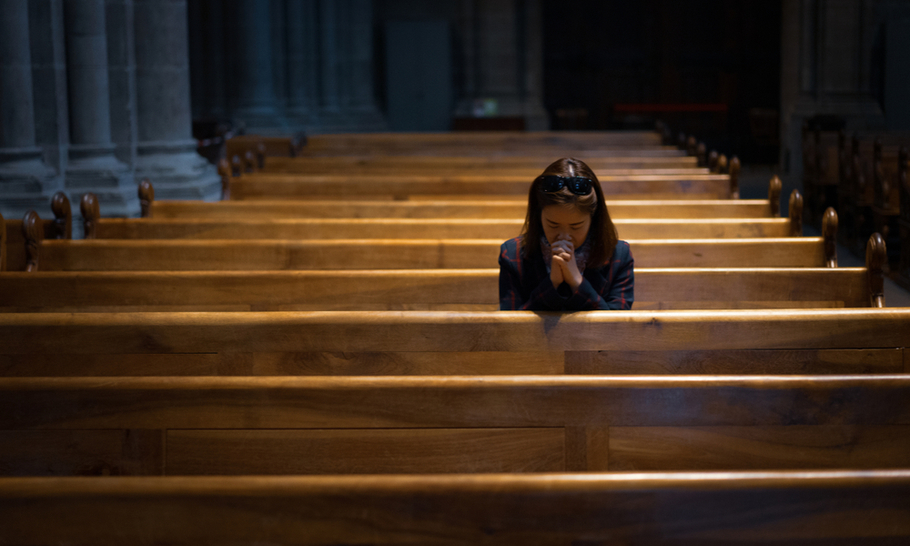Freedom of religious belief is in decline — it is taking human rights down with it

(Shutterstock)
November 9 was the anniversary of the day the Berlin Wall began coming down. It was also the anniversary of the beginning of Kristallnacht, the Nazi pogroms against Germany’s Jews which took place in November 1938. This makes it an appropriate moment for an audit of progress, or lack of it, in protecting human rights around the world.
The UN Declaration of Human Rights (UNDHR) is our best shot at defining the simple demands of human dignity. But Article 18 of the Declaration — the right to freedom of religious belief — is now violated on a global scale.
British foreign policy has been equivocal in the promotion of rights. There was a high point when Robin Cook was at the Foreign Office (FCO), but even his proposed “ethical dimension” to foreign policy came in for ridicule. The low point was the loss, under austerity, of dedicated human rights staff. Even lower was Britain’s recent refusal to grant asylum to Asia Bibi, released from imprisonment on false blasphemy charges in Pakistan.
In December 2018, Jeremy Hunt, Boris Johnson’s successor as Foreign Secretary, asked the newly appointed Bishop of Truro, Philip Mounstephen, formerly head of the Church Mission Society, to review the persecution of Christians in key countries around the world. He also urged him to analyse the FCO’s response to their plight, and to recommend a “cohesive and comprehensive policy” against their persecution. It was a surprising announcement, because freedom of religious belief, let alone Christianity, had not been a priority in the UK’s human rights work.
The Foreign Office’s neglect of religious persecution springs from at least two major causes. First, over the last two decades the FCO has been struggling with climate change, religious extremism, human trafficking, Brexit, Putin, and Trump, to name but a few. Second and more significantly, Britain has become a more openly secular country.
Britain’s civil servants follow government directives and yet diplomats have only paid lip service to the promotion of religious freedom. A minority did value contact with religious leaders and did their best to help people who were persecuted for their faith. And yet the outcome of policy directives seems to have mostly depended on the belief — or prejudice — of individual diplomats and civil servants. All embassies and High Commissions were supplied with an FCO toolkit on freedom of religion but a survey of diplomatic personnel has found that only 63 per cent said they had implemented the toolkit’s provisions. Interviews with religious leaders and communities show that only a small minority of embassies and High Commissions, mainly in the Middle East and North Africa, are active in providing effective help for persecuted Christians.
The Bishop of Truro’s Report, focusing on the persecution of Christians in the context of freedom of all religions, takes us back to the years after the Second World War and the origins of the UN Declaration of Human Rights. The World Council of Churches’ Commission on International Affairs led by the Lutheran theologian Dr Frederick Nolde, originally lobbied for the nascent UN to establish a Commission on Religious Liberty.
It soon became clear to the churches that these rights had to be part of a wider declaration of other human rights. Eleanor Roosevelt was the first chair of a commission whose drafting committee produced the UN Declaration of Human Rights. The contribution of the British Council of Churches, the Conference of British Missionary Societies and the Greek Orthodox Lebanese Foreign Minister, Charles Malik, was to add “the right to change belief” to the right to hold beliefs.
In July 2019, Bishop Mounstephen produced a first rate and comprehensive report, which set out the extent of Christian persecution and placed it firmly in the context of the wider decline of respect for the freedom of all faiths. The report’s individual country assessments make fascinating if shocking reading.
Most notably the report advocates: an early warning system designed to pre-empt persecution; the mainstreaming of religious freedom within existing programmes of democratisation, development and peace-building; and training in religious literacy for Foreign Office staff. It also asks for a standard definition of persecution and a better understanding of the particular character of the discrimination and persecution of Christians.
It also identifies the variety of triggers and drivers of Christian persecution. As the Bishop of Truro told a recent meeting: “If you lift the stone of persecution and look underneath, what is it that you find? You find gang warfare on an industrial scale driven by drug crime; you find authoritarian, totalitarian regimes that are intolerant both of dissent and of minorities; you find aggressive militant nationalism that insists on uniformity; you find religious zealotry and fundamentalism in many different forms that often manifests itself in violence.”
I hope the FCO doesn’t shelve this important work. The situation has been deteriorating with Christians persecuted in 144 countries (up from 125 in 2015, according to the Pew Research Centre). According to the Open Doors organisation, 245 million Christians in the top 50 worst-offending countries, currently experience persecution today.
Progress in combatting religious persecution has been reversed, whether in the cultural genocide of the Uighurs in China or the decline in the number of Christians surviving in Iraq’s Ninevah Plain (alongside this is the tragedy of the Yazidis). The Christian population of Iraq has fallen from 1.5 million before 2003 to about 120,000 today. Between 1990 and 2017, 45 Catholic priests and one Cardinal were murdered by drugs cartels in Mexico.
This report on the persecution of Christians is as painful as it is revealing. Politicians must be pressed about what they intend to do to implement its findings. A general election provides unique opportunities. As William Wilberforce said, presenting a report on the slave trade to the House of Commons: “You may choose to look the other way, but you can never again say you did not know.”





